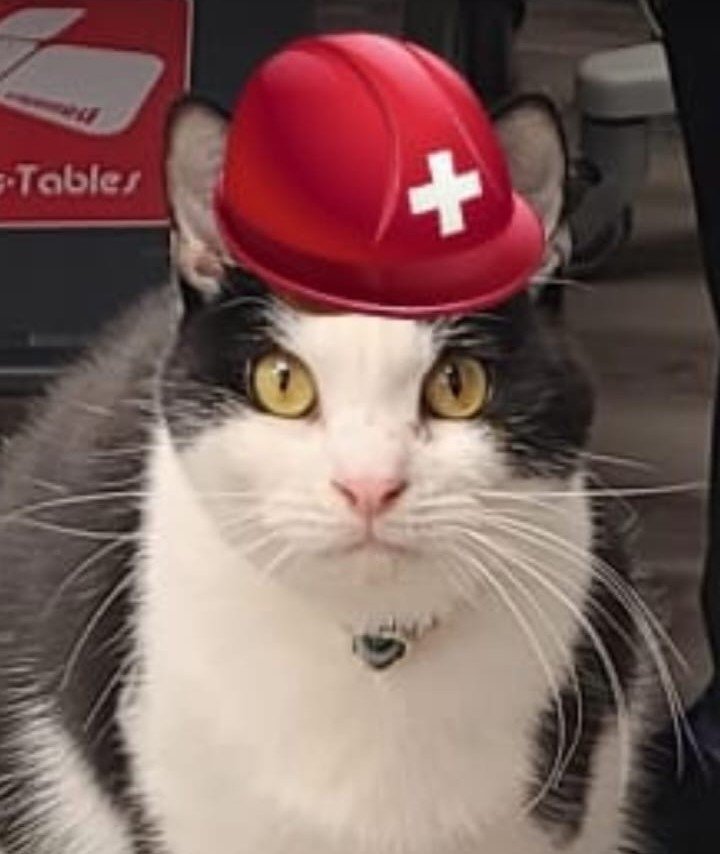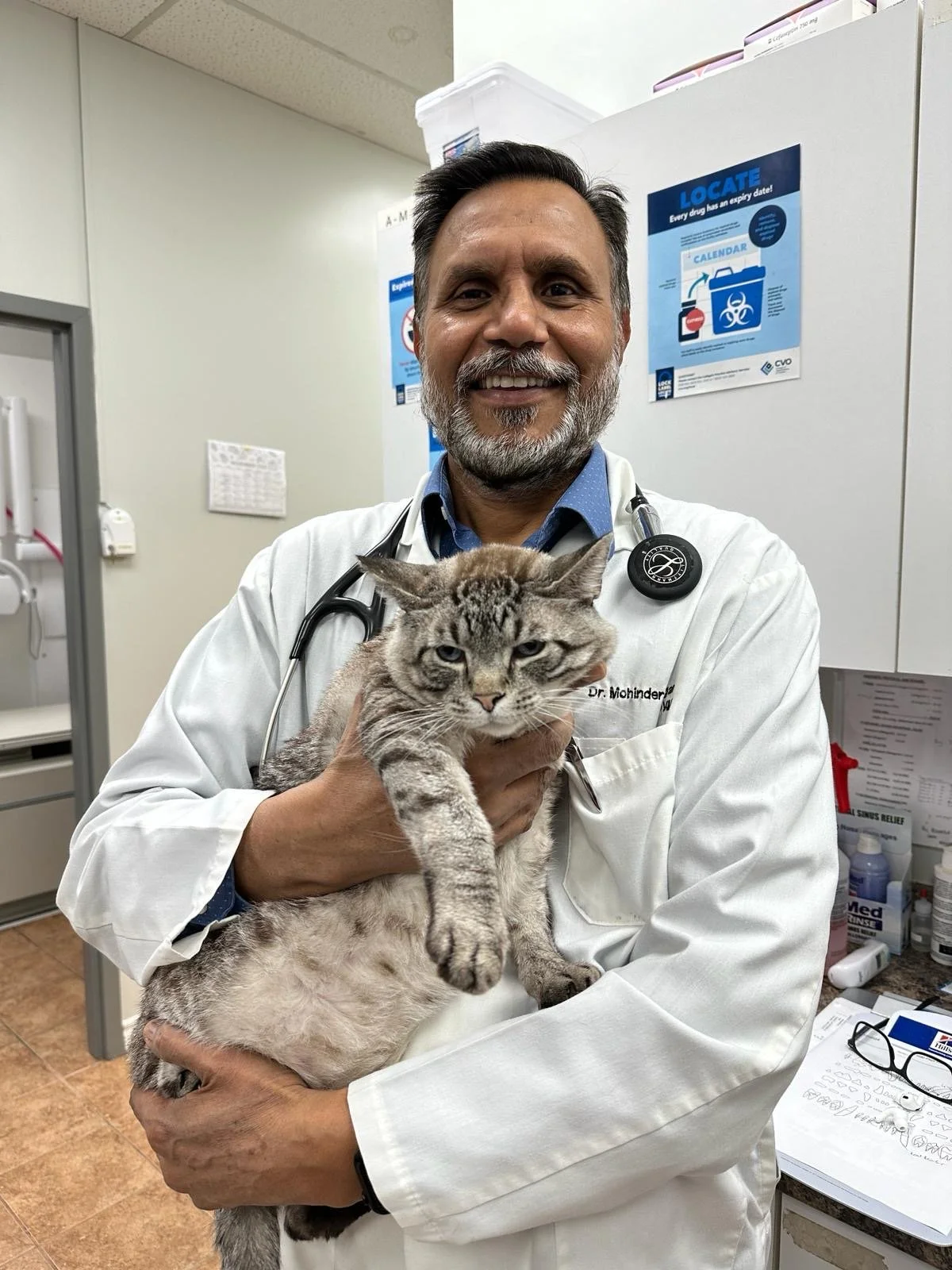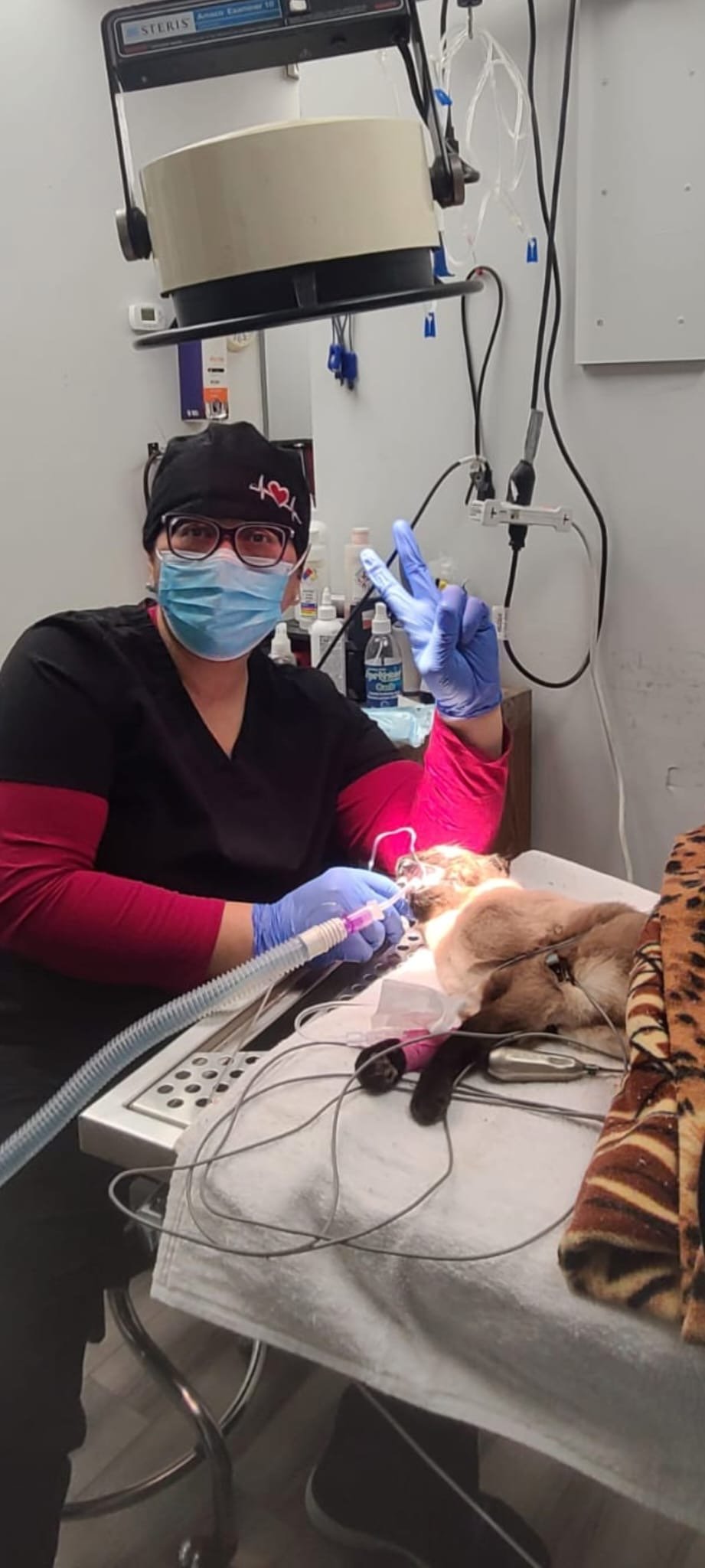Why are Dentals Important?
The mouth is the primary access to the inside of the body. When the mouth is not in good condition it can affect much more than just the teeth, it can affect a cat’s way of life. As bacteria builds in the mouth it can travel into the body leading to further health issues down the road. Thus, it is extremely important to help cats maintain their mouths in order to help have a better quality of life and a longer life as well.
70% of cats will have some form of dental disease by the time they are 3 years of age. Cats are at risk for 3 primary issues in the mouth. Gingivitis, Periodontal disease, and and progressive tooth resorption.
Tooth resorption. Gingivitis is inflammation of the gums themselves. This occurs as plague begins to build around the tooth irritates the gingiva. Plaque itself is the accumulation of thousands of bacteria that bind together to cover the teeth and form hard tartar. The bacteria that lead to tartar is built daily and without regular brushing can lead to Periodontal disease and progressive tooth resorption.
Periodontal disease starts with gingivitis that has not been treated. Once periodontitis begins, damage to the teeth can no longer be reversed. In periodontitis tissues that hold the tooth roots to the gums and bone weaken due to the bacteria accumulation and inflammation from the gums. As the connection from tooth to gum dissolves this increases the chance that the tooth will be lost and causes pain in the process as the bacteria continues to thrive.
Tooth resorption is very common in cats and can occur anytime within a cat’s life. Tooth resorption is the process of tooth breakdown from the inside of the tooth to outer layers. These slowly progressive “holes” occurring from resorption expose the sensitive areas of the tooth causing severe pain. Although the exact cause of resorption is unknown, poor dental health can play a role in progression of the disease. The only effective method to treat resorption is to extract the tooth so the cat is no longer in pain.
Signs of a cat maybe suffering from dental disease are bad breath, reluctance to eat, drool, bleeding of the gums, shaking of the head and pawing at the mouth. Once the dental disease is present the only way to treat is with professional dental done under general anesthetic and dental x-rays. Unfortunately, most often dental disease is missed in its early stages. The best way to help prevent dental disease is to reduce the rate at which plaque is built. This can be done with brushing, dental chews, water additives or a dental food meant to scrap the surface of the teeth.
Written by Dr Khan & Dr Bangar



